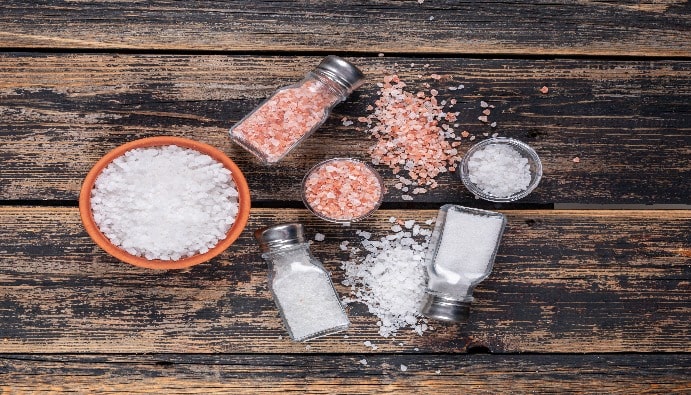
BLOG
KATEGORİDEKİ DİĞER YAZILAR

Salt is one of the substances used to increase the durability of food, to provide a protective effect by preventing the development of microorganisms and to add flavor. There is more or less salt in foods, either naturally or added later.
When the harmful effects of salt on human health became known, the demand for alternative salt types increased. Today, there are different types of salt used other than table salt. The most well-known ones are Himalayan salt, kosher salt, sea salt, celtic salt...
Why are different alternatives preferred instead of the table salt we use the most? What are the harms of table salt?
Table salt is defined by the Turkish Food Codex as finely ground, iodine-enriched, refined or unrefined processed salt. Table salt is extracted from underground salt sources and refined. As a result of refining, additives are added to the salt, which is 97% sodium chloride, to prevent clumping. Due to the additives used, natural salts are preferred more than table salt.
While the amount of salt that should be consumed daily is 5 grams per person, daily consumption in Turkey is over 15 grams. In other words, 3-4 times more salt is consumed than the required amount.
However, overuse of salt causes high blood pressure, cardiovascular problems over time. Table salt, which is beneficial for electrolytes and hormones in the body, can disrupt cell balance when consumed in excess.
Natural salts should be preferred because table salt is refined and additives are added to ensure its fluidity. However, even if we choose the healthy option, the use of more than 5 grams of salt per day is harmful to human health.
Nanolab Laboratories Group continues to provide services within the scope of Food Analysis.
Contact us for more information.
You can follow us on LinkedIn for up-to-date news and posts about our services.
Follow our Instagram account to be informed about our latest blog posts.